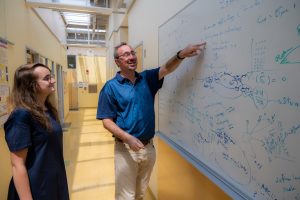09-07-2023. Congratulations to the Yu lab on a new publication, Point-supervised Single-cell Segmentation via Collaborative Knowledge Sharing. The article describes a new deep learning algorithm for training convolutional neural nets (CNN) to perform the single-cell segmentation task using point-label or no human label. (Yu J. Point-supervised Single-cell Segmentation via Collaborative Knowledge Sharing. IEEE Trans Med Imaging. 2023 Sep 7;PP. doi: 10.1109/TMI.2023.3312988. Epub ahead of print. PMID: 37676808.)
News
Yan, Acker and Loew’s new paper on near infrared fluorescent voltage sensors
08-14-2023. CCAM Faculty Yan, Acker and Loew publish a paper on near infrared fluorescent voltage sensors in PNAS. The organic synthesis of the new ElectroFluor dyes is described as well as an application to optogenetic activation and sensing of cardiac action potentials in live mouse hearts.
Yan, P.; Acker, C. D.; Biasci, V.; Judge, G.; Monroe, A.; Sacconi, L.; Loew, L. M. (2023). Near-Infrared Voltage-Sensitive Dyes Based on Chromene Donor. Proceedings of the National Academy of Sciences, 120 (34), e2305093120.
CCAM training is featured at UConn Today
Michael Blinov and Sophia Pidvysotski, a high school senior student at Miss Porter’s, a research apprentice at CCAM, are featured in the UConn today devoted to UConn Health’s High School Research Apprentice Program:
Connecticut High School Students Conducting Research at UConn Health
Biophysical Modeling of the Cell special interests group at ASCB
Prof Margaret Johnson from John Hopkins University and Michael Blinov are hosting the Special Interest Subgroup session on Biophysical Modeling of the Cell at Cell Bio 2023 – an ASCB/EMBO (https://www.ascb.org/cellbio2023/) meeting in Boston, MA, December 2-6. The session will take place on Wednesday, December 6, 8:30 AM – 11:00 AM (https://www.ascb.org/cellbio2023/program/subgroups/).
24th Annual Computational Cell Biology Workshop
06-28-2023. The 24th Annual Computational Cell Biology (CCB) workshop took place at the Center for Cell Analysis and Modeling (CCAM) on June 26-28th. 11 participants from all over the US (from Maryland to Illinois) came to Farmington to work on developing their modeling projects using VCell and COPASI software tools, designed and maintained at CCAM. The students were helped by a CCAM team consisting of Michael Blinov, Ann Cowan, Leslie Loew, Pedro Mendes, Ion Moraru, Kelvin Peterson, Jim Schaff, Nathan Schaumburger, and Boris Slepchenko.
